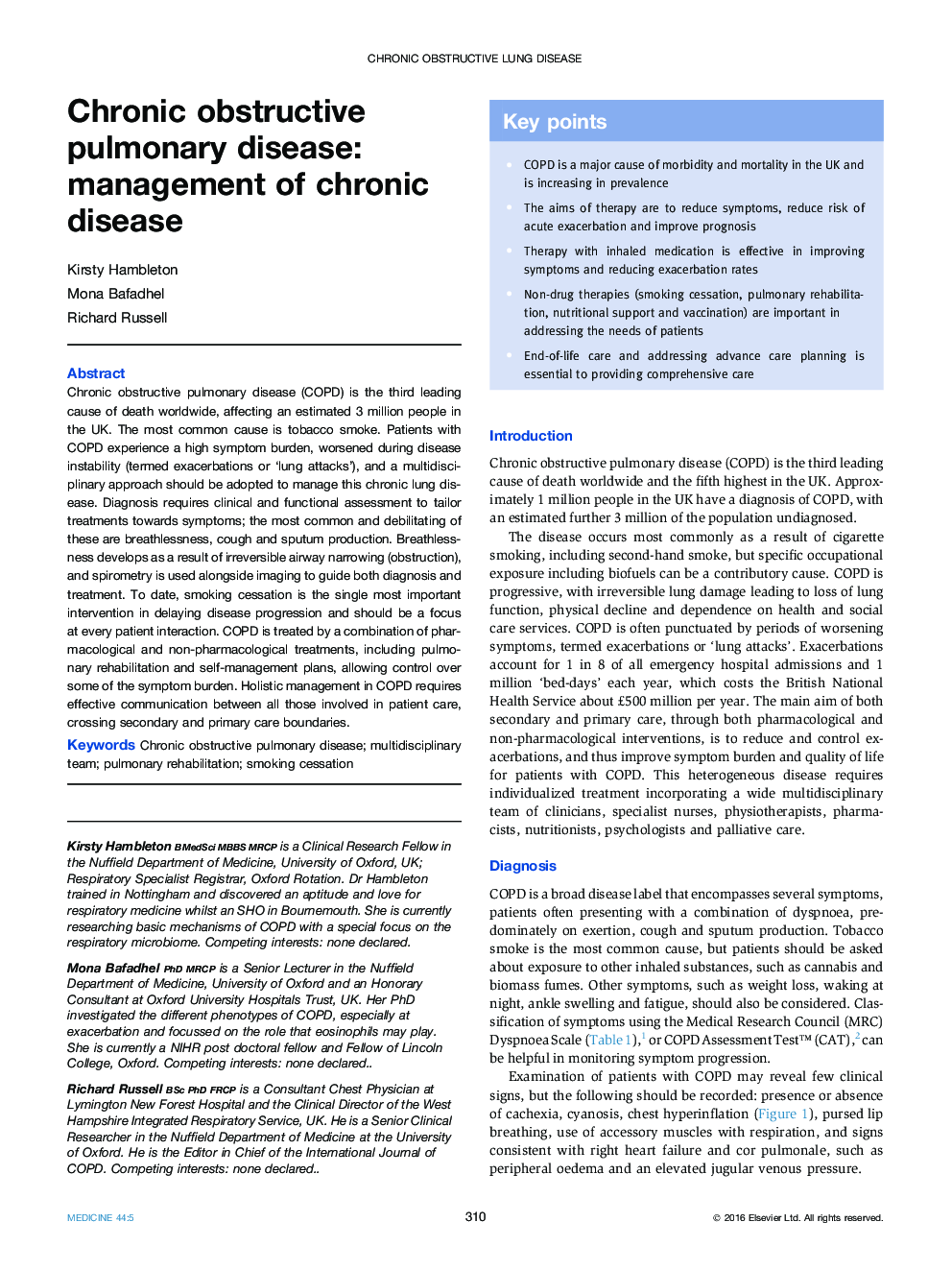| Article ID | Journal | Published Year | Pages | File Type |
|---|---|---|---|---|
| 3803617 | Medicine | 2016 | 4 Pages |
Chronic obstructive pulmonary disease (COPD) is the third leading cause of death worldwide, affecting an estimated 3 million people in the UK. The most common cause is tobacco smoke. Patients with COPD experience a high symptom burden, worsened during disease instability (termed exacerbations or ‘lung attacks’), and a multidisciplinary approach should be adopted to manage this chronic lung disease. Diagnosis requires clinical and functional assessment to tailor treatments towards symptoms; the most common and debilitating of these are breathlessness, cough and sputum production. Breathlessness develops as a result of irreversible airway narrowing (obstruction), and spirometry is used alongside imaging to guide both diagnosis and treatment. To date, smoking cessation is the single most important intervention in delaying disease progression and should be a focus at every patient interaction. COPD is treated by a combination of pharmacological and non-pharmacological treatments, including pulmonary rehabilitation and self-management plans, allowing control over some of the symptom burden. Holistic management in COPD requires effective communication between all those involved in patient care, crossing secondary and primary care boundaries.
